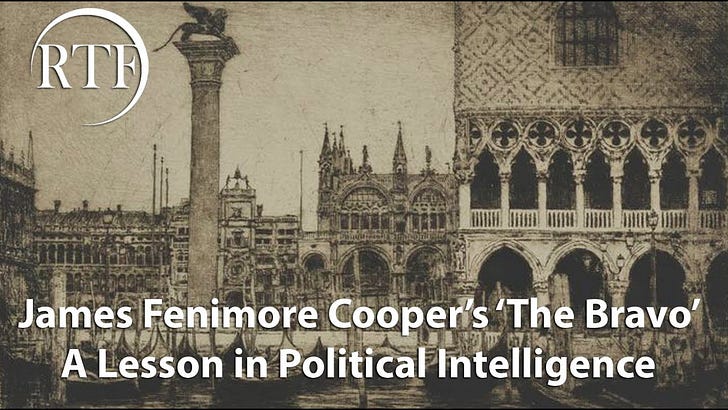“Whenever the government of the United States shall break up, it will probably be in consequence of a false direction having been given to public opinion. This is the weak point of our defenses, and the part to which the enemies of the system will direct all their attacks. Opinion can be so perverted as to cause the false to seem true; the enemy, a friend, and the friend, an enemy; the best interests of the nation to appear insignificant, and the trifles of moment; in a word, the right the wrong, the wrong the right. In a country where opinion has sway, to seize upon it, is to seize upon power. As it is a rule of humanity that the upright and well-intentioned are comparatively passive, while the designing, dishonest, and selfish are the most untiring in their efforts, the danger of public opinion’s getting a false direction is four-fold, since few men think for themselves.”
-James Fenimore Cooper
This week I had the pleasure of moderating a lecture featuring Rising Tide Foundation president Cynthia Chung who delivered the presentation “James Fenimore Cooper’s lesson in Political Intelligence.”
James Fenimore Cooper (1789 – 1851) is probably best known as an American writer of “The Last of the Mohicans” though has much more to offer than simply this one famous story. For his entire life, Cooper was provoked by the question: what constitutes the formation of the best of republics? He was devoutly concerned that the young United States was in danger of straying from those noble ideals established in its founding documents under the subversive corruption of a British-directed fifth column that never left after 1776.
Two notable works that Cooper composed to tackle this issue were “The Spy: a Tale of the Neutral Ground” and “The Bravo.”
The Spy is the story of a double agent, a true patriot of his country, who could not even reveal his true identity to George Washington and is only known after he falls in battle. It is dedicated to those in service of political intelligence for their country, who live a life where those around them despise and curse their names, never knowing the service and sacrifice they make for their country.
The Bravo, which is another name for “assassin”, tells a story in Venice during the 17th century. Although wrapped in “fiction”, the tale explores those fundamental differences between Venetian constitution compared to the United States. Although both states refer to themselves as “republics”, Cooper demonstrates that nothing could be further from the truth. The Bravo calls into question what constitutes a truly just republic compared to an oligarchic tyranny that merely wears the name “republic”.
Cynthia shows in the course of this lecture that Cooper’s often-overlooked role in world history demonstrates that he was himself deeply connected to patriotic intelligence networks working to defend the young USA from the subversive influence of oligarchical intrigue emanating out of London and the lagoons of Venice.
Supplementary Reading:
A Study of Schiller’s The Ghost Seer
Cynthia is Editor-in-Chief and co-founder of the Rising Tide Foundation. She has lectured on the topics of Schiller’s aesthetics, Shakespeare’s tragedies, Roman history, the Florentine Renaissance among other subjects. She is a writer for Strategic Culture Foundation, and is a contributing author to the book series “The Clash of the Two Americas.”




J.F.C.’s insight defining the fragility of democratic government is a lesson to every citizen of ‘republics’ globally.
Excellent research and context, Matt.